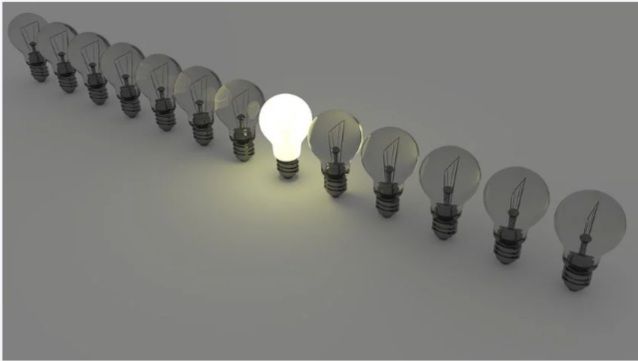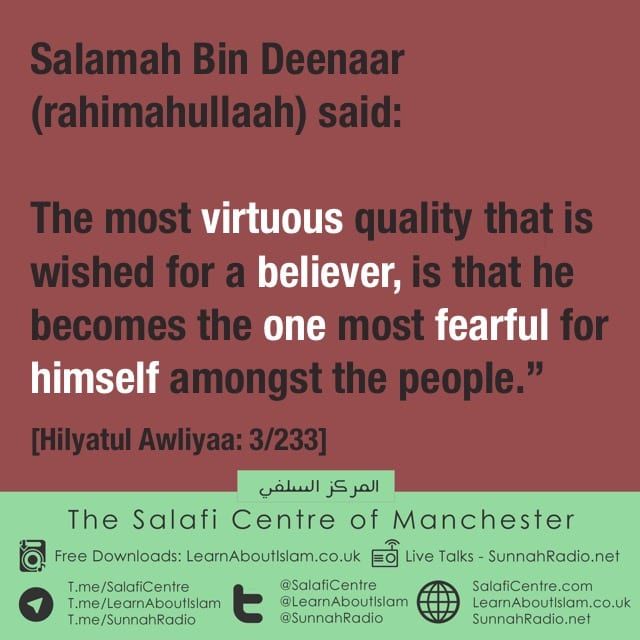In The Name of Allah, The Most Merciful, The Bestower of Mercy.
“What’s your proof that I can’t celebrate Mawlid, National Day, Israa Wal-Miraaj”, etc
The above statement is uttered by some of those who can neither offer any proof nor can they ever offer proof to justify these practices, rather, they give verdicts based on conjecture. Allah’s Messenger, peace and blessings of Allah be upon him, said:
“Verily, Allah does not take away knowledge by snatching it from the people, but He takes it away by taking away death of the religious scholars till none of the scholars remains alive. Then the people will take ignorant ones as their leaders, who, when asked to deliver religious verdicts, will issue them without knowledge, the result being that they will go astray and will lead others astray”. [Bukhari and Muslim]
Shaikh Abdullah Al-Bukhari, may Allah preserve him, stated:
This text (proves) that the disappearance of knowledge will not be through its removal from the hearts, but through the death of the scholars. (Then) the ignorant people will remain- those who will occupy the place of the scholars in giving verdicts and teaching. They will teach and give verdicts based on ignorance, thus ignorance will spread and become manifest”. Therefore, if the sound Sunni knowledge is taken away, acting upon it will be taken away- is that not the case?! When ignorance manifests, acting upon it will become manifest, thus both knowledge and acting upon (Knowledge) will disappear, and ignorance will manifest, and acting upon (ignorance) will become widespread just as Al-Hafidh Al-Qurtubi clarified in Al-Mufhim. [1] [end of quote]
Indeed, it is a well-known principle among the scholars of Usul Al-Fiqh that the ruling concerning all matters of worldly life—such as clothing, food, and various other activities—is that they are permissible, unless there exists divine text that renders them impermissible. [2]
As for acts of worship, Al-Allamah Abdul Muhsin Al-Abbad, may Allah preserve him, said:
“The initial ruling regarding acts of worship is that neither are they permissible nor legislated, except when there is proof to show that they are legislated by Allah and His Messenger; otherwise they are included in the statement of Allah:
[أَمۡ لَهُمۡ شُرَڪَـٰٓؤُاْ شَرَعُواْ لَهُم مِّنَ ٱلدِّينِ مَا لَمۡ يَأۡذَنۢ بِهِ ٱللَّهُۚ – Or have they partners with Allah (false gods), who have instituted for them a religion which Allah has not allowed?!]” [3]
The aforementioned principle concerning acts of worship, which is well understood by the scholars of Usul Al-Fiqh, highlights mistake of the one who says: “Provide evidence that I cannot celebrate the Mawlid, National Day, Israa Wal Miraj etc”.
Al-Allamah Abdul Muhsin Al-Abbad said: Two conditions must be fulfilled for an act of worship to be accepted; the first of the two conditions is that the act of worship must be done sincerely for Allah, and secondly the act of worship must be in agreement with the Sunnah of the Messenger, peace and blessings of Allah be upon him. The act of worship has to be done sincerely for the sake of Allah (alone) and no one is to be associated as a partner with Allah in worship. The act of worship must be done in conformity with what the Messenger conveyed (the Qur’an and the Sunnah). This is what the Shahadah (لا إله إلا الله محمدا رسول الله) necessitates. (لا إله إلا الله) necessitates that acts of worship must be carried out sincerely for the sake of Allah alone; and (محمدا رسول الله) necessitates that acts of worship must be carried out in conformity with what was revealed to the noble Messenger. Therefore, Allah is not to be worshipped with bidah, newly invented matters in Religion, and evil acts, for which Allah, The Most High, has sent down no authority; rather acts of worship must conform with the Sunnah of the noble Messenger. If any of these two conditions or both of them are not fulfilled, the act of worship will be rejected by Allah [The Mighty and Majestic] says: [وَقَدِمۡنَآ إِلَىٰ مَا عَمِلُواْ مِنۡ عَمَلٍ۬ فَجَعَلۡنَـٰهُ هَبَآءً۬ مَّنثُورً – And We shall turn to whatever deeds they disbelievers, polytheists] did, and We shall make such deeds as scattered floating particles of dust] [Al-Furqan. 23]
The noble Messenger said: [مَنْ أَحْدَثَ فِي أَمْرِنَا هَذَا مَا لَيْسَ مِنْهُ فَهُوَ رَدٌ- He who innovates something in this matter of ours [i.e., Islam] that is not of it will have it rejected (by Allah)].[Al-Bukhari. 2697] [Muslim. 1718]
And in another wording of this hadith in Sahih Muslim the Prophet said: [مَنْ عَمِلَ عَمَلًا لَيْسَ عَلَيْهِ أَمْرُنَا فَهُوَ رَد – He who does an act (of worship) which we have not commanded (i.e. not commanded by the Prophet), will have it rejected].
The Prophet [peace and blessings of Allah be upon him] said:
فَإِنَّهُ مَنْ يَعِشْ مِنْكُمْ فَسَيَرَى اخْتِلَافًا كَثِيرًا، فَعَلَيْكُمْ بِسُنَّتِي وَسُنَّةِ الْخُلَفَاءِ الرَّاشِدِينَ الْمَهْدِيينَ، عَضُّوا عَلَيْهَا بِالنَّوَاجِذِ، وَإِيَّاكُمْ وَمُحْدَثَاتِ الْأُمُورِ؛ فَإِنَّ كُلَّ بِدْعَةٍ ضَلَالَةٌ
Verily he lives long among you will see a lot of differing, so you must keep to my Sunnah and the Sunnah of the Khulafaa Ar-Raashidun [the rightly guided caliphs]. Adhere to it with your molar teeth (i.e. adhere to it firmly). And beware of newly invented matters [in the religion], for every newly invented matter [in the religion] is a bidah [innovation in the religion], and every bidah is misguidance. [Abu Dawood. Number 4607] [Tirmidhee. 2676]
The Messenger, peace and blessings of Allaah be upon him, has clarified -in the hadith about the seventy-three sects amongst whom seventy-two sects will enter the hellfire and one sect will be saved- the saved sect are those who adhere to the path him and his noble companions adhered to. [4]
Imam Abdul Aziz Bin Baz, may Allah have mercy upon him, was asked: What is the intent behind the Messenger’s statement when he spoke about the Ummah in the hadith: “All of them (the sects) are in the fire except one” and what is that one?. Also, will all the other 72 (deviant) sects be in the fire for eternity? Benefit us.
Response: The prophet, peace and blessings of Allah be upon him, said, “The Jews split into 71 sects, meaning all of them are astray and their affair ruined, except one. The Christians split into 72 sects, meaning all of them are astray and their affair ruined, except one. And this Ummah will split into 73 sects- all of them in the fire, except one. This one group is Ahlus Sunnah Wal Jamaa’ah [those who firmly adhere to the authentic Prophetic Sunnah and are united upon that] – the companions of the Prophet and those who follow them exactly in faith, the adherents to pure Islamic monotheism and sound faith”.
As for the other 72 sects that have been threatened with the fire, among them is one who is a disbeliever (see footnote a), among them is one who is a sinner, and among them is one about whom it is established with clear evidence that he is an innovator in religious affairs. So, the one – among them – that dies in a state of disbelief (see footnote b) will be in the fire for eternity, and the one that dies in a state of adherence to religious innovation that is lesser than major disbelief (see footnote c) or sins is under the will of Allah, while still threatened with the fire. So, based on this it is known that not all of them are disbelievers, but rather among them is a disbeliever and other than him among the sinners and the innovators in religious affairs. [5]
Imam Malik, may Allah have mercy upon him, said, “The latter part of this Ummah [i.e. those who will come after the Sahabah] will not be rectified except by way of that which rectified its earlier part [i.e. the pious predecessors]”. And he said, “Whoever innovates a bidah in Islaam and considers it to be something good, then indeed he has claimed that Muhammad betrayed the Risaalah (i.e. the message he was entrusted with); because Allaah said: ٱلۡيَوۡمَ أَكۡمَلۡتُ لَكُمۡ دِينَكُمۡ – This day, I have perfected your religion for you]. Therefore, what was not part of the religion at that time [i.e. during the time of the Messenger] cannot be part of the religion today (i.e. after he departs from this world)”. [6]
Ataa, may Allah have mercy upon him, narrated:
A woman said in the presence of Aa’isha, may Allah be pleased with her: “If the wife of such and such gives birth, we’ll slaughter a camel”. Aa’isha said, “But the Sunnah is that two sheep are to be slaughtered for the birth of a boy and one sheep for the birth of a girl”.
Al-Allamah Zayd Bin Hadi Al-Mad’khali, may Allah have mercy upon him, said: “In this hadith, there is evidence that Ghuluww (going beyond what the Shariah has legislated- neither commanded nor recommended) is forbidden, and that adherence to the Sunnah is the truth. If a newly born child is a boy, then his guardian should slaughter two sheep; and if the child is a girl, one sheep is slaughtered for her. One should not obligate to himself to slaughter a camel, for indeed he has not been commanded to do that. Limiting oneself to the Sunnah is the good thing to do instead of encroaching on its legislated boundaries. [7]
Shaikh A-Islam Ibn Taymiyyah, may Allah have mercy upon him, said: Indeed, there has been much confusion in this subject matter, just as it is the case in the subject matter of halal and haram. A group of people make permissible some of the things which Allah has declared impermissible and others declare impermissible some of those things which Allah has made permissible. Likewise, some people innovate acts of worship that have not been legislated by Allah; rather Allah, The Most High, prohibited them. The foundation of the religion of Islam is that the permissible affairs are those that Allah and His Messenger have made permissible, and the impermissible affairs are those that Allah and His Messenger have made impermissible. It is not allowed for anyone to leave the straight path that Allah sent His Messenger with. Allah said:
وَأَنَّ هَـٰذَا صِرَٲطِى مُسۡتَقِيمً۬ا فَٱتَّبِعُوهُۖ وَلَا تَتَّبِعُواْ ٱلسُّبُلَ فَتَفَرَّقَ بِكُمۡ عَن سَبِيلِهِۦۚ ذَٲلِكُمۡ وَصَّٮٰكُم بِهِۦ لَعَلَّڪُمۡ تَتَّقُونَ
And verily, this is my Straight Path, so follow it, and follow not [other] paths, for they will separate you away from His Path. This He has ordained for you that you may become pious].
Abdullah Ibn Mas’ud, may Allah be pleased wit him, reported that the Prophet, peace and blessings of Allah be upon him, drew a line for us and said: “This is Allah’s Straight Path.’’ Then he drew lines to its right and left and then said: ‘’These are other paths. Upon every one of them there is a devil calling towards it.’’ Then he recited:
[وَأَنَّ هَـٰذَا صِرَٲطِى مُسۡتَقِيمً۬ا فَٱتَّبِعُوهُۖ وَلَا تَتَّبِعُواْ ٱلسُّبُلَ فَتَفَرَّقَ بِكُمۡ عَن سَبِيلِهِۦ – Indeed this is My Straight Path, so follow it. And do not follow other paths; they will separate you from His Path.” [Al-Musnad 4437]
Allah mentions – in Surah Al-An’am, Surah Al-A’raf and other them – those deeds due to which the idol worshipers rebuked when they declared impermissible the things that Allah did not declare impermissible, such as the Baahirah [i.e. a she-camel whose milk was spared for the idols and nobody was allowed to milk it] and the Saa’ibah [i.e. a she-camel let loose for free pasture for their false gods, e.g. idols, etc., and nothing was allowed to be carried on it]. They [also] declared permissible those [deeds] which Allah declared impermissible, such as the killing of their children and they instituted a religion which Allah did not allow. Allah [The Most High] says:
[أَمۡ لَهُمۡ شُرَڪَـٰٓؤُاْ شَرَعُواْ لَهُم مِّنَ ٱلدِّينِ مَا لَمۡ يَأۡذَنۢ بِهِ ٱللَّهُۚ – Or have they partners with Allah (false gods), who have instituted for them a religion which Allah has not allowed].
There were impermissible deeds that they established as acts of worship, such as shirk, and lewd behaviour, such as Tawaaf around the Kabah, whilst being naked. The acts of worship through which a person seeks to get close to Allah are those that are beloved and pleasing to Allah and His Messenger- whether obligatory or recommended – as reported in Sahih Al-Bukhari that Prophet, peace and blessings of Allah be upon him, said that Allah [The Blessed and Exalted] said: “And the most beloved things which My slave comes nearer to Me, is what I have enjoined upon him; and My slave keeps on coming closer to Me through performing Nawaafil (praying or doing extra deeds besides what is obligatory) till I love him, then I become his sense of hearing with which he hears, and his sense of sight with which he sees, and his hand with which he grips, and his leg with which he walks; and if he asks Me, I will give him, and if he asks My Protection (Refuge), I will protect him”. (see footnote d)
It is well known regarding the prayer that it can either be obligatory, such as the five daily prayers, or optional such as the Qiyaam Al- Layl [i.e. Tahajjud prayer]. Also regarding fasting, it can either be obligatory, such as fasting in the month of Ramadhaan, or it can be optional such as fasting three days every month. Also travelling to the Masjid Al-Haraam [i.e. The kabah] is obligatory and travelling to the other two Masajid-Masjid of the Prophet and Masjid Al-Aqsaa-is recommended. Also, charity can be an obligation or recommendation such as the surplus beyond [what is] needed, as Allah [The Most High] says: [وَيَسْأَلُونَكَ مَاذَا يُنفِقُونَ قُلِ الْعَفْوَ – And they ask you what they ought to spend. Say: That which is beyond (what they) need]. [8]
Birthdays and National Days
Saudi Erudite Imam, Muhammad Ibn Salih Al-Uthaymin, may Allah have mercy upon him, said:
Any occasion that is observed as a day of celebration, occurring weekly or annually, and is not sanctioned by Islamic law, is considered a Bidah (innovative practice in religion). This is because the One [i.e., Allah] who establishes all legislation has prescribed the Aqeeqah for newborns, without instituting any further celebrations. Consequently, the adoption of such recurring celebrations implies a comparison to Islamic holidays, which is not permissible. In Islam, the only recognised festivals are Eid Al-Fitr and Eid Al-Adha, along with Friday, which is designated for a specific form of worship. [9]
Saudi Erudite Imam, Abdul Aziz Bin Baz, may Allah have mercy upon him, said:
According to Islamic law, any celebrations beyond the two that are legislated are deemed incorrect, regardless of whether they are held in honour of an individual, their mother, daughter or son. All this that has been newly introduced – nowadays – is an imitation of the (customs) of Christians and Jews. It has no basis or foundation (within Islamic legislation). Mother’s Day, Father’s Day, Uncle’s Day, or any specific day dedicated to an individual or the day for his daughter or son, all are considered inappropriate under Islamic law. [10]
He also stated:
“The celebration of National Day can be viewed as an imitation of the adversaries of Allah. While it may stem from good intentions and the efforts of individuals striving to arrive at a correct conclusion regarding the matter, it is evident that such celebrations lack legislative endorsement and are not befitting (not appropriate or not allowed); rather, imitation of Allah’s adversaries is found in it, even if it is not intended as an act of worship. Should worship be the intention behind it, it would constitute an innovation in religion; however, worship is not intended through it, rather, what is intended is to express congratulations and to highlight the achievements of the nation, which aligns it with the commemorative practices initiated by the Jews and Christians. Therefore, it is not befitting (appropriate, allowed) to imitate them in this regard or in any other matters (that Islamic law has neither permitted nor sanctioned). [11]
Imam Ibn Al-Qayyim, may Allah have mercy upon him, said:
Hardship is only encountered by the one who abandons the Ma’lufat and Awa’id [i.e. those habitual things, deeds, practices, customs, etc] for other than the sake of Allah. As for the one who abandons them truthfully and sincerely from the bottom of his heart- for the sake of Allah alone- then indeed he does not encounter any difficulty due to abandoning them except in the beginning so that he is tested as to whether he is truthful or untruthful in abandoning them? If he exercises a little bit of patience, its [abandonment] will alternate into pleasure. Ibn Sirin, may Allah have mercy upon him, said that he heard Shurayh swearing by Allah that “A servant does not abandon anything for the sake of Allah and finds a loss in that”. Thus, their statement [i.e. the people of knowledge] that “Whoever abandons something for the Sake of Allah, Allah will replace it with what is better”. This is true. This compensation is of different types and the best of that which a person is compensated with is the desire and yearning to get close to Allah, seeking after Allah’s pleasure, love of Allah, and the heart granted by way of it tranquility, strength, enthusiasm, happiness and being pleased with its Lord, The Exalted. [12]
Saudi Erudite Imam, Abdul Aziz Bin Baz, may Allah have mercy upon him, said:
It is incumbent upon every Muslim to refrain from relying (solely) on customary practices; instead, he must refer to the authentic Islamic legislation. Anything that is validated by Islamic law is deemed permissible, while that which is not validated is considered impermissible. The customs of people do not serve as valid evidence for determining the legality of any matter. All customs practiced by people within their respective nations or tribes should be evaluated against the Book of Allah and the Sunnah of His Messenger, peace and blessings be upon him, for adjudication. Thus, what Allah and His Messenger have permitted is lawful, and what they have prohibited must be forsaken, regardless of its acceptance as a custom among the people. [13]
Israa Wal-Miraj
Saudi Erudite Imam, Abdul Azeez Bin Baz, may Allah have mercy upon him, stated:
There is no doubt that the Israa Wal Miraj is from Allah’s Great Signs, which show the truthfulness of His Messenger Muhammad [peace and blessings of Allah be upon him], the greatness of his status in the Sight of Allah [The Mighty and Exalted], as well as evidence of Allah’s Magnificent Power and His Exaltation above His Creation [Mankind, Jinn etc]. Allah [Glorified be He and free is He from all imperfections] said:
سُبْحَانَ الَّذِي أَسْرَى بِعَبْدِهِ لَيْلًا مِنَ الْمَسْجِدِ الْحَرَامِ إِلَى الْمَسْجِدِ الْأَقْصَى الَّذِي بَارَكْنَا حَوْلَهُ لِنُرِيَهُ مِنْ آيَاتِنَا إِنَّه هُوَ السَّمِيعُ الْبَصِيرُ
Glorified (and Exalted) be He (Allah) [above all that (evil) they associate with Him], Who took His slave (Muhammad ) for a journey by night from Al-Masjid-al-Haram (at Makkah) to the farthest mosque (in Jerusalem), the neighbourhood whereof We have blessed, in order that We might show him (Muhammad) of Our Ayat (proofs, evidences, lessons, signs, etc.). Verily, He is the All-Hearer, the All-Seer. [Surah Al-Israa. Verse 1]
It has been transmitted by way of Tawatur -[i.e. an authentic narration transmitted by numerous narrators to the extent that such narrators cannot all agree on a lie]- from Allah’s Messenger [peace and blessings of Allah be upon him] that he was taken up to the heavens and its gates were opened for him until he went past the Seventh Heaven. Then his Lord [Allah (Glorified be He and free is He from all imperfections)] spoke to him regarding what He willed and obligated the five daily prayers on him. Allah [Glorified be He and free is He from all imperfections] obligated fifty daily prayers on him at first, but our Prophet, peace and blessings of Allah be upon him, did not cease going back to Allah and asking Him to reduce the obligation until Allah made it five – five obligatory prayers but their reward is equal to fifty. That is because (one) good deed carries ten rewards. Therefore, all praise and thanks be to Allah for all His blessings [i.e. all the blessings bestowed on His servants].
This night -in which the Israa Wal Miraj took place- has not been transmitted in the authentic narrations that it took place specifically in the month of Rajab or other than it. All that has been narrated about the specific (month in which) it took place is not transmitted from the Prophet [peace and blessings of Allah be upon him] with authentic chains of transmission according to the scholars of Hadeeth. And with Allah is Perfect Wisdom [free from all weaknesses, shortcomings, deficiencies, faults] as to why He made the people forget [the specific night the Israa and Miraj took place].
And even if the specific night it took place was established, then still it would neither be permissible for the Muslims to specify any act of worship concerning it nor celebrate it. That is because the Prophet [peace and blessings of Allah be upon him] and his companions [may Allah be pleased with them] neither celebrated it nor did they carry out any specific acts of worship on such a night. Had it been that celebrating it is legislated (in the religion), the Messenger [peace and blessings of Allah be upon him] would have made it known to the Ummah- either by way of speech or action. And if anything was practiced, then it would have been known and widely known and his companions would have transmitted it to us, for indeed, they have transmitted – from our Prophet- everything that is needed by the Ummah. They did not neglect anything in the religion; rather they were foremost in practicing every righteous act. Therefore, if celebrating on this night was legislated (in Islam), they would have preceded us in such an act. The Prophet is (was) the most sincere adviser to the people [i.e. in both their religious and worldly affairs], conveyed the message perfectly, and fulfilled the trust [which Allah entrusted on him]. If exalting this night and celebrating it was something (legislated) in the religion, then neither would the Prophet [peace and blessings of Allah be upon him] have neglected nor concealed it.
Therefore, when it [is it the case that nothing has been transmitted from the Prophet’s speech or actions, and his companions] about this, then one knows that celebrating and exalting this night has nothing to do with Islam, for indeed Allah has perfected the religion for this Ummah, completed His favour upon them and censured the one who legislates in the religion that which is not part of it. Allah [Glorified and Exalted be He] said:
[الْيَوْمَ أَكْمَلْتُ لَكُمْ دِينَكُمْ وَأَتْمَمْتُ عَلَيْكُمْ نِعْمَتِي وَرَضِيتُ لَكُمُ الْإِسْلامَ دِينًا – This day, I have perfected your religion for you, completed My Favour upon you, and have chosen for you Islam as your religion. [Al-Ma’idah. 3]
Allah says: [أَمْ لَهُمْ شُرَكَاءُ شَرَعُوا لَهُمْ مِنَ الدِّينِ مَا لَمْ يَأْذَنْ بِهِ اللَّهُ وَلَوْلا كَلِمَةُ الْفَصْلِ لَقُضِيَ بَيْنَهُمْ وَإِنَّ الظَّالِمِينَ لَهُمْ عَذَابٌ أَلِيمٌ – Or have they partners with Allah (false gods), who have instituted for them a religion which Allah has not allowed. And had it not been for a decisive Word (gone forth already), the matter would have been judged between them. And verily, for the Zalimun (polytheists and wrong-doers), there is a painful torment. [Ash-Shura. 21]
It has been transmitted from Allah’s Messenger in the authentic narrations that he warned against innovations in religion and stated explicitly that it is a deviation to warn the Ummah about the great danger of religious innovations and to keep them away from acting on it. It was transmitted from Aa’isha, may Allah be pleased with her, that the Prophet, peace and blessings of Allah be upon him, said: [من أحدث في أمرنا هذا ما ليس منه فهو رد – Whoever innovates something in this affair of ours [i.e. the religion of Islam], it will be rejected].[Al-Bukhari 2697]
[من عمل عملاً ليس عليه أمرنا فهو رد – Whoever performs (an act of worship) which is not in accordance with our affair (i.e. the religion of Islam), it will be rejected. [Muslim 1718]
The Messenger, peace and blessings of Allah be upon him, said:
أُوصِيكُمْ بِتَقْوَى اللَّهِ وَالسَّمْعِ وَالطَّاعَةِ وَإِنْ عَبْدًا حَبَشِيًّا فَإِنَّهُ مَنْ يَعِشْ مِنْكُمْ بَعْدِي فَسَيَرَى اخْتِلَافًا كَثِيرًا فَعَلَيْكُمْ بِسُنَّتِي وَسُنَّةِ الْخُلَفَاءِ الْمَهْدِيِّينَ الرَّاشِدِينَ تَمَسَّكُوا بِهَا وَعَضُّوا عَلَيْهَا بِالنَّوَاجِذِ وَإِيَّاكُمْ وَمُحْدَثَاتِ الْأُمُورِ فَإِنَّ كُلَّ مُحْدَثَةٍ بِدْعَةٌ وَكُلَّ بِدْعَةٍ ضَلَالَةٌ
I command you to fear Allah and to listen and obey [the Muslim ruler in what is good] even if a slave is a leader over you. Certainly, the one who will live among you will see lots of differences, so adhere to my Sunnah and the Sunnah of the right-guided Khulafaa [i.e. Abu Bakr, Umar, Uthman, and Ali]. Bite onto that with your molar teeth [i.e. adhere firmly to it] and beware of the newly-invented matters in the religion, because every newly invented affair in the religion is a Bidah [religious innovation] and every bidah is misguidance. [Abu Dawud 4607]
The narrations that convey the meaning of this affair are many. And it has been transmitted from the companions of Allah’s Messenger and the pious predecessors [i.e. the first three generations of Islam] after them that they warned against religious innovations and [gave advice to the people in order to make them fearful of practicing religious innovations]. That is because such practices are additions [i.e. acts that are not legislated by Allah and His Messenger] and [practicing them] is tantamount to legislating something in the religion, which Allah has not ordained. It is tantamount to belittling the religion of Islam and accusing it [of imperfection] after it was perfected.
And when it is the case that Allah has obligated on Muslims to give advice to another and explain what He has legislated for them in the Religion, and forbade one from concealing knowledge, I saw that I should notify (or warn) my Muslim brothers about this religious innovation, which has spread to many regions, to the extent that some people think that it is something related to the religion. [14]
Abdullah Ibn Mas’ud, may Allah be pleased with him, said,
“Follow (i.e. the Qur’an, the authentic Sunnah, and the understanding of Muhammad’s companions) and not innovate (in religious matters ) because you have been sufficed”. [15]
Mu’adh Bin Jabal, may Allah be pleased with him, said:
“Beware of that which is innovated (in the religion) because what is innovated is misguidance”. [16]
Ibn Mas’ud, may Allah be pleased with him, said:
“You will find people who claim that they are calling to the Book of Allah whilst they have placed it behind their backs. So, adhere to knowledge and beware of innovations in religious affairs, going beyond bounds and delving too much into affairs (without a justified reason”. [17]
Imam Al-Hasan Al-Basri, may Allah have mercy upon him, said:
“The Sunnah -by the One besides whom there is none worthy of worship except Him (i.e. Allah)- is between the one who exceed the limits and the one who falls short, so be patient upon it-may Allah have mercy upon you; for indeed Ahlus Sunnah were the fewest people in the past and shall be the fewest people (from those to) come- [الّذين لم يذهبوا مع أهل الإتراف في إترافهم -those who did not go with the people of transgression and corruption in their transgression and corruption; [ولا مع أهل البدع في بدعهم -nor with the people of Bidah in their Bidah]; rather they (exercised) patience upon the Sunnah until they met their Lord (i.e. passed away). Likewise-InShaaAllaah- you be (the same)”. [18]
Imam Al-Barbahaaree, may Allah have mercy upon him, said:
“Beware of small innovations (i.e. religious innovations) because they grow until they become large”. [19]
Ibn Aqeel, may Allah have mercy upon him, said:
“If the truthful ones were to keep silent and the falsifiers speak, then the creation would have relinquished what they have witnessed [of truth] and reject what they have not witnessed. So when the devout ones desire to revive the Sunnah, the people would reject it and think that it is bidah”. [20]
The Perfect Example to Follow In Every Aspect of Life
Allah, The Exalted, said:
لَّقَدۡ كَانَ لَكُمۡ فِى رَسُولِ ٱللَّهِ أُسۡوَةٌ حَسَنَةٌ۬ لِّمَن كَانَ يَرۡجُواْ ٱللَّهَ وَٱلۡيَوۡمَ ٱلۡأَخِرَ وَذَكَرَ ٱللَّهَ كَثِيرً۬ا
Certainly, there is for you in the Messenger of Allah an excellent example to follow for anyone whose hope is in Allah and the Last Day and who remembers Allah often]. [Al-Ahzab. 21]
Allah, The Mighty and Majestic, said:
قُلۡ إِن كُنتُمۡ تُحِبُّونَ ٱللَّهَ فَٱتَّبِعُونِى يُحۡبِبۡكُمُ ٱللَّهُ وَيَغۡفِرۡ لَكُمۡ ذُنُوبَكُمۡۗ وَٱللَّهُ غَفُورٌ۬ رَّحِيمٌ۬
Say (O Muhammad to mankind): If you (really) love Allah then follow me, Allah will love you and forgive you of your sins. And Allah is Oft-Forgiving, Most Merciful]. [Aal Imran 31]
Imam Abdul Aziz Bin Baz said:
This verse is conveyed to everyone who claims to love Allah, yet does not truly follow Allah’s Prophet Muhammad, peace and blessings of Allah be upon him, by obeying the Prophet’s commands and avoiding what he has forbidden. Therefore, unless he truly follows the Messenger, their claim of love for Allah is not truthful. [21]
Imam Sufyan Ibn Uyaynah, may Allah have mercy upon him, said:
“The Messenger, peace and blessings of Allah be upon him, serves as the greatest criterion (for both humanity and Jinn), with all matters being submitted to him (for evaluation and adjudication) according to his manners, path, and guidance. Consequently, anything that aligns with this is deemed to be the truth, while anything that contradicts it is considered falsehood”. [22]
A Muslim needs to recognise the paramount importance of adhering to the teachings of the final Messenger in all matters of life. In Islam, the only sanctioned celebrations are the two Eids, as the final Messenger, peace and blessings be upon him, nullified all others. Thus, we confine ourselves to the divine ordinances established by our Lord and His final Messenger. Anas Ibn Malik [may Allah be pleased with him] reported that Allah’s Messenger [peace and blessings of Allah be upon him] arrived in Medina during two days in which they (i.e. the people) were celebrating. He asked, “What are these two days?” They said, “We used to celebrate these two days in the pre-Islamic era”. He said, “Verily, Allah has replaced these two days with two days that are better – Eid al-Adha and Eid al-Fitr”. [23]
Therefore, we confine ourselves to what Allah’s Messenger, peace and blessings of Allah be upon him, has sanctioned- neither speaking nor acting before he has commanded or prohibited in affairs related to the religion. Allah says:
يَا أَيُّهَا الَّذِينَ آمَنُوا لَا تُقَدِّمُوا بَيْنَ يَدَيِ اللَّهِ وَرَسُولِهِ ۖ وَاتَّقُوا اللَّهَ ۚ إِنَّ اللَّهَ سَمِيعٌ عَلِيمٌ
يَا أَيُّهَا الَّذِينَ آمَنُوا لَا تَرْفَعُوا أَصْوَاتَكُمْ فَوْقَ صَوْتِ النَّبِيِّ
O you who believe! Do not put (yourselves) forward before Allah and His Messenger, and fear Allah. Verily! Allah is All-Hearing, All-Knowing. O you who believe! Raise not your voices above the voice of the Prophet. [Al-Hujuraat. 1-2] [24]
————————————–
Footnotes a and b: Bear in mind without any doubt that expelling a Muslim from the fold of Islam is the responsibility of the upright scholars. Read below:
https://www.salafipublications.com/sps/sp.cfm?subsecID=MNJ09&articleID=MNJ090001&articlePages=1
https://www.spubs.com/sps/sp.cfm?secID=MNJ&subsecID=MNJ09&loadpage=displaysubsection.cfm
Footnote c: The Types of Bidah: All religious innovations are evil, but there are those that will exit a person from the fold of Islaam (Bida’atul Mukaffirah) and those that do not exit a person from the fold of Islaam (Bida’atul Mufassiqah). Al-Allaamah Rabee Bin Haadee Al-Madkhalee [may Allaah preserve him] was asked whether there is a difference between Bidah Al-Mukaffirah and Bidah Al-Mufassiqah; so he replied that there is Bidah Mukaffirah, such as rejecting the Ruyah (i.e. denying that the believers will see Allaah in the afterlife); rejecting Allaah’s Uluww [i.e. denying that Allaah is above his creation –Allaah ascended over the Throne in a way that benefits his majesty)]; invoking other than Allaah; offering slaughtered sacrifice (i.e. animals) to other than Allaah etc. These are affairs of Bidah Al-Mukaffirah (the bidah that is tantamount to disbelief). But we do not make Takfeer of the people who commit this type of Bidah until we establish the proofs against them. That is because some of them (i.e. the people who fall into these affairs) carry doubts and are far away from the era of Prophethood and its light (i.e. guidance). So they fall into the likes these innovations. Rejecting the Ruyah is disbelief; rejecting Allaah’s Uluww is disbelief; the saying that the Qur’aan is created is disbelief-major disbelief. But this person, -[who testifies that none has the right to be worshipped except Allaah and that Muhammad is the messenger of Allaah, and he prays, observes fasting, wants paradise and believes in that] -received the doubts of the people of falsehood, so he falls into the likes of these affairs (i.e. these innovations that are tantamount to disbelief). So we say to him: You have fallen into disbelief and the evidence is this and this, and we clarify for him. So if Allaah grants him Tawfeeq and he returns to the truth, then all praise is due to Allaah. But if not, we declare him a disbeliever after establishing the proofs against him. As for Bidah Al-Mufassiqah it is other than this (i.e. it is not at the level of that which is tantamount to disbelief)… [http://www.rabee.net/ar/questions.php?cat=26&id=484 paraphrased]
Footnote d: Regarding the statement: And My slave keeps on coming closer to Me through performing Nawaafil (praying or doing extra deeds besides what is obligatory) till I love him, then I become his sense of hearing with which he hears, and his sense of sight with which he sees, and his hand with which he grips, and his leg with which he walks…This statement is understood to mean that when a person becomes a Wali (close friend) of Allaah [The Mighty and Majestic), then when the command of Allaah is mentioned with regards to what Allaah loves or hates, he protects his hearing from what Allaah hates and lends an ear to what Allaah loves. He also does the same with regards to what he looks at; what he grips with his hand and where he walks to. Or Allaah guides him, so that he only looks at what Allaah loves; listens to what Allaah loves and walks towards what Allaah loves. [Sharh Arba’een of Imaam Muhammad Bin Saaleh Al-Uthaymeen.. Pages 376-381 and Sharh Arba-een of Shaikh Saaleh Aala Shaikh pages 256-258] [Also see, Jaami-ul Uloom Wal-Hikam of Imaam Ibn Rajab pages 619-641 Daar Ibn Rajab 2002];
Read: article by Shaikh Abu Khadeejah [may Allaah preserve him]: The Prophet’s Birthday — Are the Eid Milad
Celebrations from Islam and the Sunnah?
https://www.abukhadeejah.com/prophet-birthday-eid-milad/
The Origins of The Mawlid, the Eid Milād Nabiyy: By Shaikh Abu Hakeem [may Allaah preserve him]:
https://www.salafisounds.com/the-origins-of-the-mawlid-eid-milad-an-nabi-by-abu-hakeem/
Exposing the Innovated Practice of the Mawlid – Important Facts Related to Celebrating the Prophet’s Birthday- By Ustadh Abu Hatim [may Allah preserve him]:
Exposing the Innovated Practice of the Mawlid – Important Facts Related to Celebrating the Prophet’s Birthday
The Notion of Bidah Hasanah- By Shaikh Abu Iyaad [may Allah preserve him]:
http://www.bidah.com/articles/ezaqa-the-notion-of-bidah-hasan-good-innovation-destroyed-part-1.cfm
http://www.shia.bs/articles/chbjn-refuting-the-notion-of-bidah-hasanah-good-innovation-in-worship-part-8.cfm
http://www.salafipublications.com/sps/sp.cfm?subsecID=BDH02&articleID=BDH020003&pfriend=
[1] “Al-Hajr Fee Daw-il Kitaab Was-Sunnah Wa Fahm Salaf Al-Ummah2. page: 15-16
[2] Read about this matter in Majmu Al-Fatawa 21/535
[3] Read about this principle in Majmu Al-Fatawa 16/17-19
[4] An Excerpt from أثر العبادات في حياة المسلم pages 3-31
[5]https://binbaz.org.sa/fatwas/17308/%D8%A7%D9%84%D9%85%D8%B1%D8%A7%D8%AF-%D8%A8%D9%82%D9%88%D9%84%D9%87-%EF%B7%BA-%D9%83%D9%84%D9%87%D9%85-%D9%81%D9%8A-%D8%A7%D9%84%D9%86%D8%A7%D8%B1-%D8%A7%D9%84%D8%A7-%D9%88%D8%A7%D8%AD%D8%AF%D8%A9 paraphrased ]
[6] Al-I’tisam by Imam Ash-Shatibi 1/28
[7] at-Taleeqaat Al-Maleehah Alaa Silsilah al-Ahaadeeth As-Saheeh. 1/416
[8] An Excerpt from Al-Ibaadaat Ash-Shar’iyyah Wal-Farqu Baynahaa Wa Baynal Bid’ah page: 78-79
[9] Sharh Kitab at-Tawheed 1/382
[10]https://binbaz.org.sa/fatwas/26374/%D8%AD%D9%83%D9%85-%D8%A7%D8%B9%D9%8A%D8%A7%D8%AF-%D8%A7%D9%84%D9%85%D9%8A%D9%84%D8%A7%D8%AF paraphrased
[11]https://binbaz.org.sa/fatwas/2592/%D8%AD%D9%83%D9%85-%D8%A7%D9%84%D8%A7%D8%AD%D8%AA%D9%81%D8%A7%D9%84-%D8%A8%D8%A7%D9%84%D8%A7%D8%B9%D9%8A%D8%A7%D8%AF-%D8%A7%D9%84%D9%88%D8%B7%D9%86%D9%8A%D8%A9 paraphrased
[12] Al-Fawaa’id page 166
[13] Majmoo Al-Fataawas 6/510
[14] http://www.binbaz.org.sa/article/24%5D paraphrased
[15] Sharh Usool Al-I’tiqaad 1/86]
[16] Sharh Usool Al-I’tiqaad 1/89]
[17] Al-Bidah Wan-Nahiy Anhaa. page 59]
[18] Ighaatha Al-Lahfaan 1/70]
[19] Translation of Sharhus Sunnah by Shaikh Abu Talhah- Dawud Burbank- (May Allaah have mercy upon him and his wife). point number 7. page 28)]
[20] Shifaa As-Sudoor Fee Ziyaaratil Mashaahid Wal-Quboor page: 148]
[21] Tafsir al-Muyassar
[22] Al-Jaami Li-Akhlaaq Ar-Raawi Wa Aadaab As-Saami’ page 8
[23] Sunan Abu Dawud 1134
[24] An Excerpt from Al-Fawaa-id al-Ilmiyyah Min Ad-Durar Al-Baaziyyah. 4/ 391-392











